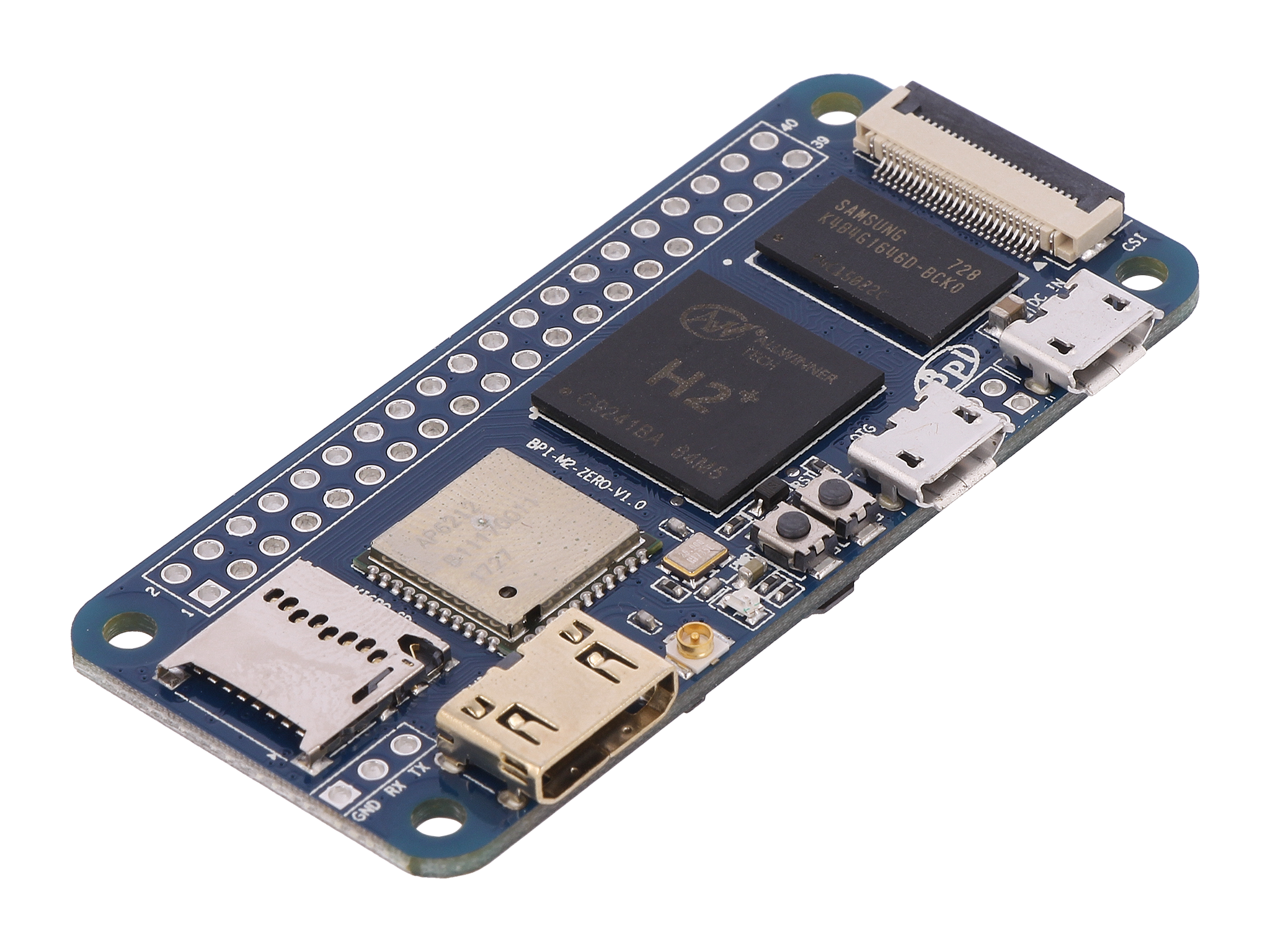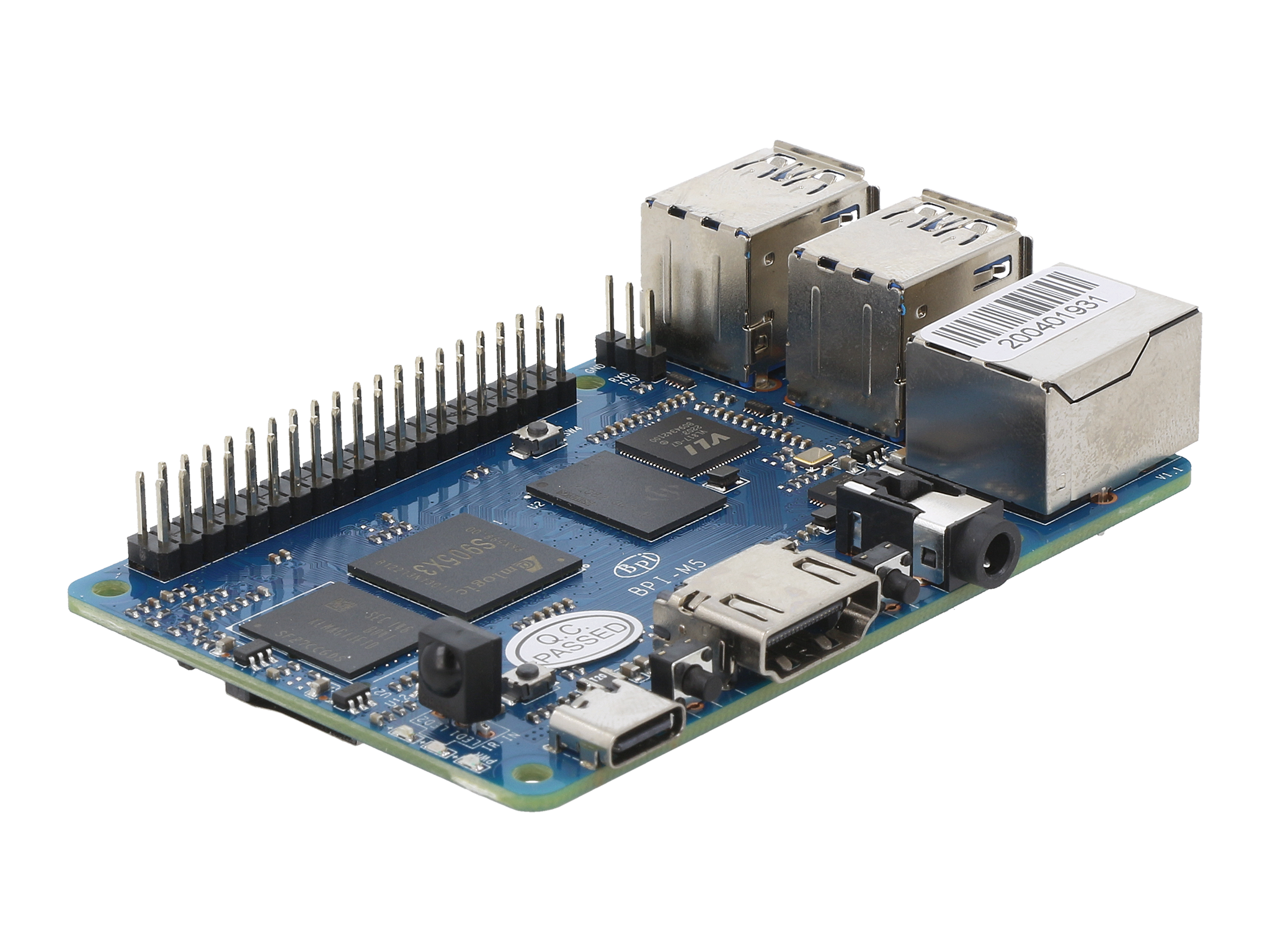Single-board computers greatly facilitate the development of complex projects. They provide an attractive platform not only for school pupils, students or amateurs, but also for professionals. In the difficult times of supply shortages, we recommend to our customers one of the most popular solutions in its field, i.e. Banana Pi computers.
Recently, simple single-board computers have become one of the most rapidly developing product groups in the field of electronics. The combination of such features as a compact size, high computing performance and optimum interface selection makes them incredibly popular. Compatibility with opensource operating systems, in particular those belonging to the Linux (including Android) or Unix (FreeBSD) family also enhances their popularity. This makes them an attractive and versatile tool used to develop numerous diverse projects, not only for amateurs, but also in industrial applications. The number of ideas for the application of these small-sized computers has grown in proportion to the development of the community focused on creating dedicated software and accessories.
For some time now, we have been experiencing noticeable problems with the availability of some previously popular single-board computer models. Such circumstances have prompted users to search for competitive solutions. Our customers interested in such products should look more closely at the Banana Pi computers manufactured by Sinovoip. They demonstrate very good parameters, and in particular they are available not only in the product offering, but also in the TME stock.
Banana Pi Zero
BANANA-PI-ZERO is a miniature solution based on the high-performance, quad-core Allwinner H2 processor with the ARM7 architecture. This computer comes with a pre-installed SDRAM DDR3, 512 MB memory unit. The PCB is equipped with a multi-function, 40-pin GPIO socket (compatible with popular standards) with a 2.54 mm package lead, i.e. ready for pin connector installation. The board also comes with a MicroSD card slot, USB OTG (On-The-Go, thanks to which the computer can be the host) slot, and a mini HDMI socket. The computer is equipped with an integrated Wi-Fi/Bluetooth communication module (facilitating external antenna connection). The Banana Pi computer design includes components that are natively supported by Android 4.4 and Linux operating systems (including Raspbian and Ubuntu distributions).
In contrast to numerous competitive models, the Banana Pi Zero computers are factory-fitted with ON and RESET buttons.

The Banana Pi Zero model can be accommodated on a 60 x 30 mm PCB.
Banana Pi Zero
Banana Pi M5

Banana Pi mounting holes and connectors are similar to those available in competitive solutions.
BANANA-PI-M5 is a solution offering much more advanced capabilities. A 92 x 60 mm PCB accommodates the Amlogic S905X3 quad-core processor clocked at 2 GHz, and supported by the Mali-G31 GPU. Moreover, this computer comes with 4 GB of LPDDR4 RAM and an integrated, 16 GB, non-volatile (eMMC) memory.
The Sinovoip computer comes with four USB B 3.0 ports, and the following connectors: RJ45 (Ethernet), HDMI, a microSD card slot and a 40-pin GPIO lead (supporting, e.g. binary signals, UART, I2C and the PWM output). The integrated IR receiver is an interesting additional feature facilitating multimedia project development.
Banana Pi M5 can be run on the Android 9 and Linux (Raspbian, Ubuntu and Debian distribution) operating systems.
Banana Pi M5
| Parameter |
BANANA-PI-ZERO |
BANANA-PI-M5 |
| RAM capacity |
512 MB |
4 GB |
| Memory type |
DDR3 |
eMMC, LPDDR4 |
| Flash storage capacity |
n/a |
16 GB |
| Processor |
ARM H2+ Quad-Core, ARM H3 Quad-Core |
Amlogic S905X3 Quad-Core |
| Architecture type |
Cortex A7 |
Cortex A55 |
| Graphic system |
ARM Mali-400MP2 |
ARM Mali-G31 |
| Size |
60 x 30 mm |
92 x 60 mm |
| Multimedia port |
mini HDMI |
HDMI, Jack 3,5mm |
| USB ports |
USB B micro x2 |
USB B 3.0 x4, USB C |
| Ethernet port |
none |
Yes, RJ45 |